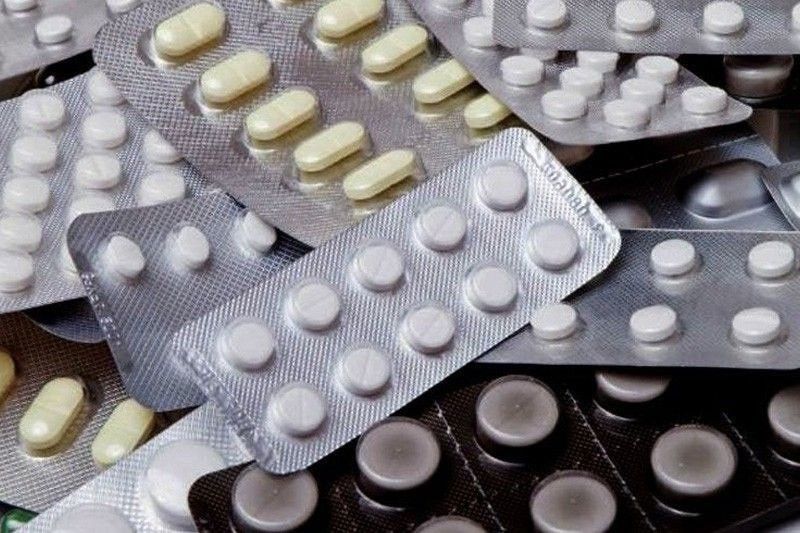DOH warns violators of drug price ceiling

MANILA, Philippines — The Department of Health (DOH) yesterday warned drug manufacturers and pharmacies that they would face penalties if they violate the newly signed Executive Order 104 cutting the prices of 87 expensive medicines by as much as 58 percent.
At a press conference, Health Secretary Francisco Duque III said that prison terms and fines would be imposed on those who will not comply with the EO on Maximum Drug Retail Prices (MDRP).
“We will immediately issue an administrative order to ensure the effective implementation of the EO on MDRP and disseminate the implementing guidelines to stakeholders,” he noted.
Duque added that violators of the price caps will be “dealt with” in accordance with Republic Act 9502 or the Cheaper Medicines Act and other related laws of the Department of Trade and Industry and Food and Drug Administration.
Last Monday, President Duterte signed EO 104, setting the maximum retail and maximum wholesale prices of selected medicines for cancer, hypertension, diabetes, heart disease, chronic lung disease and major cancers.
Under the law, jail term of five to 15 years and a fine of P100,000 to P10 milion and suspension or revocation of license to operate or business license shall be imposed on any person or entity who commits illegal price manipulation of any drug and medicine subject to price regulation.
Duque said it is not acceptable that Filipinos are still paying higher for medicines compared to patients in other countries.
For its part, Pharmaceutical and Healthcare Association of the Philippines (PHAP) reiterated its position against MDRP, saying this is not the answer to the high prices of medicine in the country.
“PHAP has been consistent in its opposition to price control since global experience had shown that artificial measures result in market inefficiencies and lack of supply,” the group claimed.
PHAP added that if reasonable profits are not realized, pharmaceutical companies would review the sustainability of their operations in the Philippines, including the possible downsizing of workforce.
Expensive drugs
A DOH study showed that generic drugs in the country are sold up to four times higher than the international preference prices, while prices of branded medicines are 22 times higher, especially in private pharmacies and hospitals.
According to Duque, medicine prices in the country are higher because of the limited competition, high disease burden and price markups throughout the supply chain from manufacturers, wholesalers, retailers and down to pharmacies.
Dr. Melissa Guerrero, DOH Pharmaceutical Division head, maintained that all drug stores are required to post the list of medicines covered by the EO in their establishments.
She gave assurance that intensive reviews were conducted with economists, clinicians and epidemiologists before coming up with the prices. Aside from this, there were also consultations with the pharmaceutical industry and other stakeholders.
Guerrero added various factors were taken into consideration, such as the prevailing wholesale price in the international market and return on investments.
She said that the medicines included in the EO are still subject to senior citizen and persons with disability discounts and value-added-tax exemption.
The official has shrugged off the threat of the PHAP that drug companies would pull out their investments in the country.
“We will be closely monitoring this. There are mechanisms in the law that will ensure access (to medicines) for those eventualities. Like there is importation,” she said.
Guerrero added that local manufacturers have also expressed willingness to take over the supply of the market when this happens.
Sen. Risa Hontiveros welcomed the signing by Duterte of EO 104 that placed a price cap on essential medicines for hypertension, diabetes, and cardiovascular diseases, among others, which she described as “a healthy exercise of regulatory powers.”
Hontiveros said EO 104 will improve access of Filipinos to essential medicines and reduce out-of-pocket expenses.
“The President’s exercise of price control and regulatory powers over drugs and medicines under the Cheaper Medicines Law is laudable,” said Hontiveros, who authored Republic Act No. 9502 or the act providing for cheaper and quality medicines.
Hontiveros delivered a privilege speech in the Senate in November last year, urging the President to exercise said regulatory powers and put a price cap on some essential medicines.
She said it has been a decade when an EO was signed prioritizing people’s welfare over the lobbying of big pharmaceutical companies that raked in profits as they sell expensive medicines.
Hontiveros noted that nearly half or 41 percent of all healthcare spending in the Philippines goes to pharmaceutical products, compared to other low-income countries.
Quezon City Rep. Alfred Vargas commended the EO, saying the lower cost of key meds will have a profound effect on cancer patients and their families.
“Not everyone has the means to pay for treatment and, sadly, this is the case for majority of Filipinos. The truth of the matter is, these patients don’t even have the money to pay for their transportation in going to the hospitals,” he related.
Vargas also called for the full implementation of the National Integrated Cancer Control Act (Republic Act 11215) that aims to provide affordable and accessible treatment, especially for lower-income cancer patients, to prevent cancer-related deaths.
Data from the Philippine Cancer Facts and Estimates of the Department of Health show that there are 11 new cases and nine deaths every hour for adult cancer, and eight deaths per day for childhood cancer in the Philippines.
There are also an estimated 110,000 new cancer cases and over 66,000 cancer deaths per year. – With Cecille Suerte Felipe, Delon Porcalla
- Latest
- Trending































